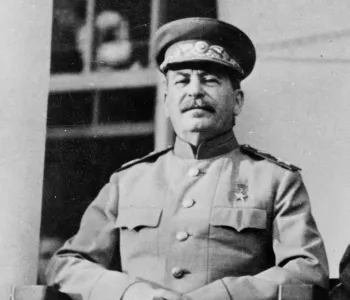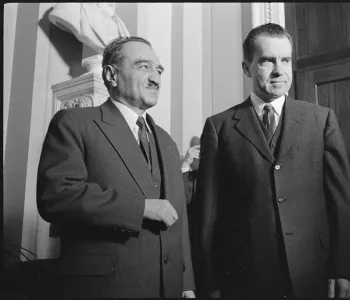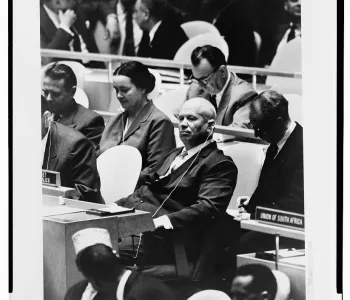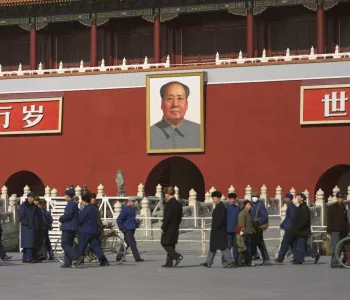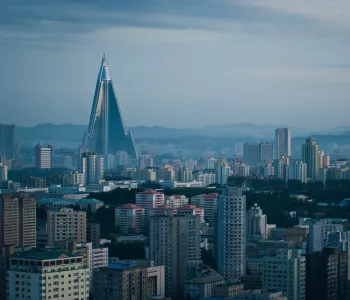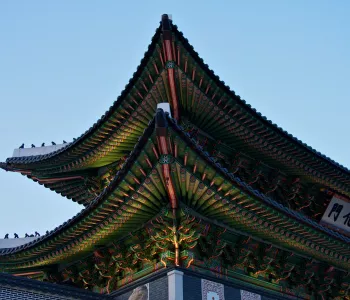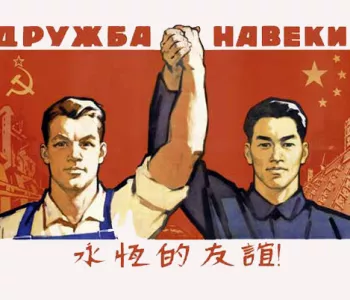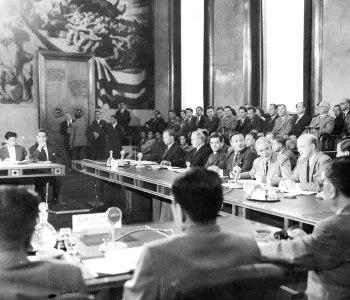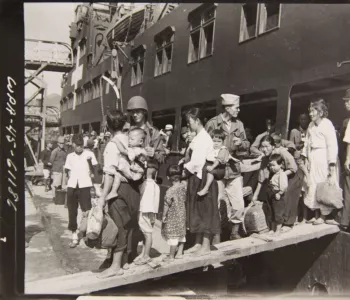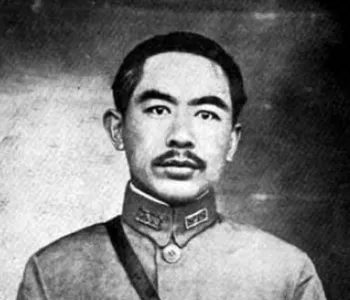d'Vinci

Molotov, Vyacheslav Mikhaylovich 1890- 1986
Vyacheslav Molotov was, most notably, the Soviet commissar of foreign affairs. Molotov negotiated the German-Soviet Non-Aggression Pact (1939), and mutual aid treaties with Britain and the US at Tehran (1943), Yalta (1945) and Potsdam (1945).

Born Vyacheslav Mikhaylovic Skryabin (Scriabin) on March 9 (February 25 old Russian calendar), 1890, in Kukarka, Russia, to middle-class parents, he became an active Marxist, took part in the revolution of 1905, joined the Bolshevik faction of the Social Democratic Party in 1906 and conducted propaganda work before being arrested and exiled by the czarist authorities. Returning from Siberia, he wrote for the Bolshevik journal Zvezda and co-founded the Bolshevik newspaper Pravda with Joseph Stalin (May 1912). Arrested and exiled regularly, he adopted pseudonyms, among them "Molotov" (hammer), which he later adopted permanently.
During the Russian Revolution, he worked closely with Lenin and Stalin, helping to plan the seizure of power from the Tsarist government. Made a candidate member to the Politburo in 1921 and later a member and secretary of the Central Committee, he strongly supported Stalin after Lenin's death. After gaining full membership in the Politburo (December 1926), he assumed control of the Moscow Party Committee, purging anti-Stalin members (1928-1930). He became chairman of the Council of People's Commissars (premier of the U.S.S.R.) in 1930 until Stalin took the post for himself (1941).
Concurrently (1939), Molotov became commissar of foreign affairs and negotiated the German-Soviet Non-Aggression Pact (Molotov-Ribbentrop Pact, August 1939). Molotov became first deputy chairman of the Council of People's Commissars (1941), and a member of the State Defense Committee (the Soviet war cabinet). After Germany invaded the U.S.S.R., Molotov negotiated mutual-aid treaties with the British and the United States and attended the Allied conferences at Tehran (1943), Yalta (1945), and Potsdam (1945).
After the war, Molotov was a key player in bringing Eastern European governments under Soviet influence. He led rejection of the Marshall Plan (1947), proposing the Molotov Plan -- the Soviet-sponsored economic grouping known as the Council for Economic Mutual Assistance (1949). Molotov, however, fell into disfavor and had to give up his position as foreign minister in 1949.
After Stalin's death he regained his post until his criticisms of Khrushchev resulted in dismissal (June 1956). Molotov became minister of state control in November 1957 but lost all his posts in June when he was accused of having joined the anti-party group trying to depose Khrushchev. Sent to Mongolia as ambassador (1957-1960), subsequently serving as the Soviet delegate to the International Atomic Energy Agency in Vienna (1960-61), he was denounced at the 22nd Party Congress (1961), retired in 1962, and finally expelled from the Communist Party (1964) after engaging in more outspoken criticisms of Khrushchev. He died in Moscow in 1986 at age 96.
